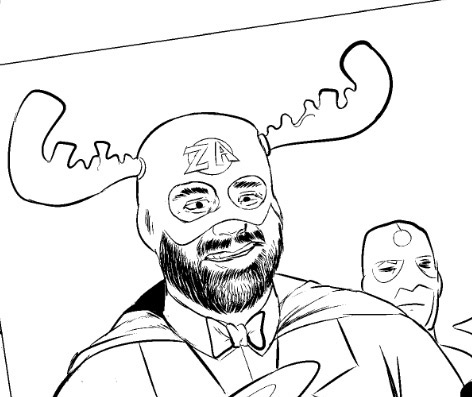The Volokh Conspiracy has rounded up several amusing examples of what they call “oral argument meltdowns”, incluing this gem:
Plaintiff appealed, arguing that the district court’s deadline was unreasonable. But more than that, he claimed in his brief and oral argument that his failure to file the pleading in time was and act of civil disobedience against the high-handed practices of the district court judge, “like Ghandi, Martin Luther King, and the brave Americans who stood up to the tyranny of King George.” (Coincidentally, the district court judge’s first name was “George”).
Which led to the following exchange:
JUDGE: Counsel, you say that your failure to meet the deadline was an act of civil disobedience, designed to demonstrate the injustice of the court’s approach in this case? And that as a result, we should reverse the trial court’s dismissal of the case and remand?
COUNSEL: Yes, your honor.
JUDGE: Now counsel, you do understand how “civil disobedience” works, don’t you?
COUNSEL: I don’t understand the question, your honor.
JUDGE: Well, the way that civil disobedience works is that you believe the law to be unjust, and so you are willing to be punished for violating it in order to demonstrate the injustice of the law. For this to be a true act of civil disobedience, therefore, you would have to be willing to accept the punishment, and through that willingness to accept the punishment, you demonstrate the injustice of the law. So, for instance, Martin Luther King’s act of civil disobedience was his willingness to be arrested and go to jail in order to demonstrate the injustice of the laws. So, if this was a true act of civil disobedience on your part, aren’t we obliged to affirm the ruling of the district court dismissing the case?
COUNSEL (after long pause): Um, your honor, I would like to amend my argument…
Heh. I bet they wanted to ammend their argument.


1 Comment
A Moving Account Of Personal Suffering Open Thread Smear Campaign National Guard in Iraq – 10 Times the Death Rate of Vietnam Attack of the RFID (PC) Inadvertent Legal Humor IT’S 1985 ALL OVER AGAIN RED RUM, RED RUM Concept Map for Peak Oil “I HAD NO IDEA I WAS THE KIRK TO HIS KHAN:” So